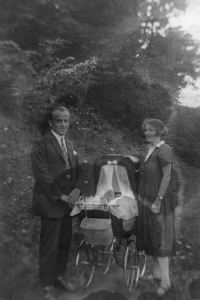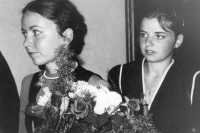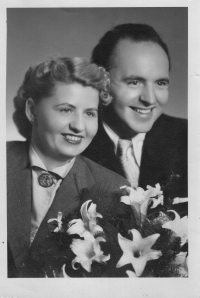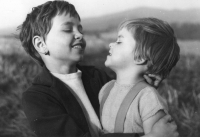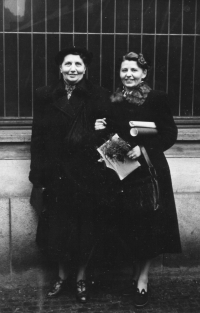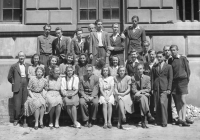From Masaryk to Havel. She got scared by German sidecars as well as Russian tanks

Download image
Jaruše Glosová, née Horynová was born on the 19th of June in Prague. She lived through the terms of all Czechoslovak and Czech presidents and witnessed many an important moment of the Czech history of the 20th century. With her parents, Oldřich Horyna and Marie Horynová, née Dovolilová, she grew up as their only child in Radotín near Prague. They moved to the capital in 1936 when Jaruše attended the fourth grade. Even before that, during one of their visits to Prague, she saw the first Czechoslovak President, Tomáš Garrigue Masaryk, at the St. Wenceslas’ Square. When he died in 1937, she witnessed the state funeral. At that time, her carefree childhood ended. In 1938, she participated at the Sokol mass gymnastics festival. Later, she started to study at the English secondary school but after the German occupation, she had to change schools and switched to the secondary school in Ječná Street. On the 14th of February in 1945, she witnessed a destructive air raid and she saw the damage caused at Vinohrady herself. When the May Uprising started, she helped to build barricades. In 1946, she and her family moved to Liberec. She graduated from medical school and for over thirty years, she worked as a paediatrician in Liberec. She married a fellow physician, Zbyněk Glos, on the symbolic date of 28th October in 1954. On the 21st of August 1968, she witnessed the dramatic event of the Warsaw Pact invasion in Liberec. In 2022, she lived in Liberec.
